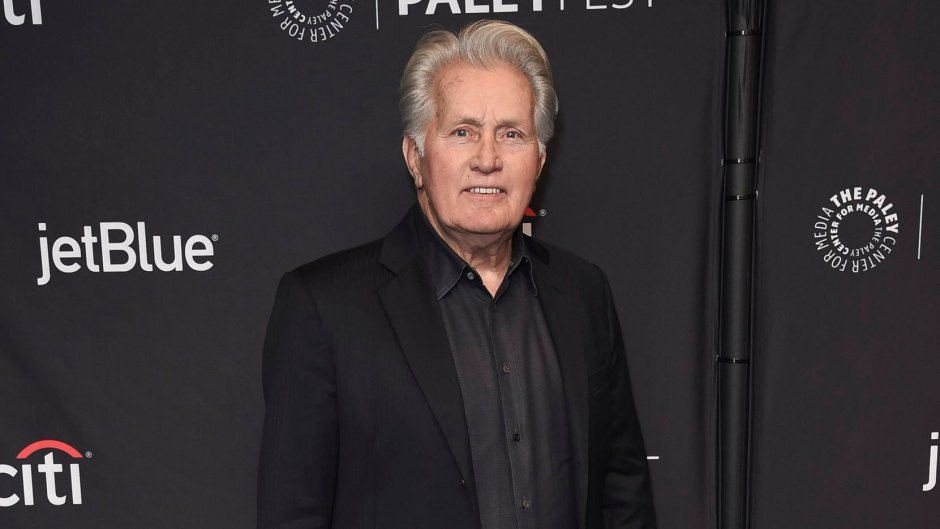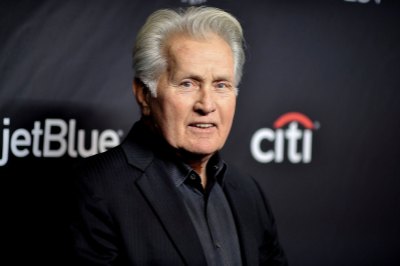
Richard Shotwell/Invision/AP/Shutterstock
Martin Sheen Reveals Changing His Name From Ramon Estevez for Hollywood Is ‘One of My Regrets’
In 1968, a young actor named Martin Sheen starred in a groundbreaking adaptation of Hamlet in New York City. Created by Free Shakespeare in the Park founder Joseph Papp, the show revolutionized the Bard’s timeless tragedy with contemporary sensibilities and rock music. “Joe wanted to do a modern version of the play, but he also wanted to do a version that spoke to an audience that did not normally attend theater — let alone Shakespeare,” Martin, 81, tells Closer. “So, we sang and danced. It was called Hamlet as a Happening or The Naked Hamlet. It was one of the greatest experiences I’ve ever had in the theater.”
Martin went on to find great success in films, including Badlands and Apocalypse Now, and on television, where he played U.S. President Josiah Bartlet on The West Wing. He’s also proud to share his memories on American Masters: Joe Papp in Five Acts, a new star-studded PBS documentary that premiered June 3. “To be a part of that theater and to have known Joe at an amazing time — it’s the highlight of my life in the theater,” Martin says. Check your local PBS station for additional air dates.
How much time did you spend in New York City doing theater?
“I was in New York as a youngster starting in 1959, and I was there for 10 years. Jan and I met there, were married there, and all our children were born there. Those 10 years were vital in my life as a husband, father, an activist and an actor.”
What did you enjoy most about your theater days?
“Athletes have this phrase, ‘We’re not going to leave anything off the field.’ That’s the way I felt about theater. I never left anything off the stage. Joe inspired you to do the most outrageous things. You’d come into rehearsal every day excited.”
What was Joe Papp like as a person?
“He was very disarming. He had this godlike reputation, but he was the most down-to-Earth, common man. He still had a Brooklyn accent, and he was a street fighter. He was very much a protector of the arts and artists — he hated bullies — so he was a man after my own heart. He was a great inspiration to me to follow my heart and conscience in life, not just in theater.”
What first inspired you to pursue acting?
“As a teenager, summer stock productions came to my hometown, Dayton, Ohio, every summer. That was my only connection to professional theater. And I grew up going to the movies.”

You loved the movies.
“Sure, I would go to the movies and be enthralled. One of my idols was James Dean. I never felt that I became an actor, I was an actor. I had a sense that I knew how to do what they were doing up on the screen. I couldn’t articulate it. I finished high school and left almost immediately for New York.”
Is it true that your father didn’t want you to go into show business?
“You couldn’t blame him. Both my parents were immigrants. My father was from Spain, and my mother was from Ireland. My real name is Ramon Estévez . My father was very practical. He was a factory worker for most of his adult life, and he wanted me to go to college and improve my chances of making a better living than he did. We had some very, very painful confrontations about it.”
How did you get your way?
“He was a big fan of TV westerns in the ’50s. One night, we started a discussion about my going to New York. He said to me, ‘You want to go into the theater. You can’t sing, you can’t dance. You don’t know what you’re doing!’ I said, ‘Pop, you sit here every night watching westerns — do you see anyone singing or dancing?’ He said, ‘No, but you don’t ride a horse either.’ He finally saw that I was committed and realized it would be a life and death struggle with me if I didn’t pursue it. When I got ready to go, he blessed me, and he continued to bless me the rest of his life. I adored him.”
Did you object to your own children going into acting?
“No, but I honestly have to say I wasn’t aware of it. I was so self-involved and trying to be a provider that I wasn’t aware of their inclination to being actors. I was doing a show one time, and Emilio showed up. I thought he was there to visit me, but he’d gotten a part in the same show. The only influence I had on Emilio was to keep his name. When he started out, his agent was advising him to change his name to Sheen and he wouldn’t do it. And I thank God he didn’t.”
Were you sorry you changed yours?
“That’s one of my regrets. I never changed my name officially. It’s still Ramon Estévez on my birth certificate. It’s on my marriage license, my passport, driver’s license. Sometimes you get persuaded when you don’t have enough insight or even enough courage to stand up for what you believe in, and you pay for it later. But, of course, I’m only speaking for myself.”
What do you consider your big break?
“Oh gosh. I considered it a big break just to get a job! ‘Oh, someone’s going to pay me for this?’ I’d do it for nothing. Don’t let anyone know, but I’d still do it for nothing!”
You spent seven seasons on The West Wing. What was special about it?
“It’s the people — so many wonderful, wonderful people. John Spencer and I were the oldest, so we were kind of like the parents. But we all treated each other with such respect, passion and, above all, joy. I still get letters from people who are just discovering it, and a lot of young people were inspired to go into public life because of it. The blessings were just endless with that show, and they’re still coming.”
Do you have any other favorite roles?
“The one that fills me with the deepest gratitude and satisfaction is called The Way. We made it in Spain about the pilgrimage to Santiago de Compostela and dedicated it to my father, who was from Galicia. It was written, directed and starred my son Emilio Estevez. It is the best thing I’ve ever done. Thousands of people have seen the film and been inspired to do the pilgrimage. That is a great source of satisfaction and pride.”







































